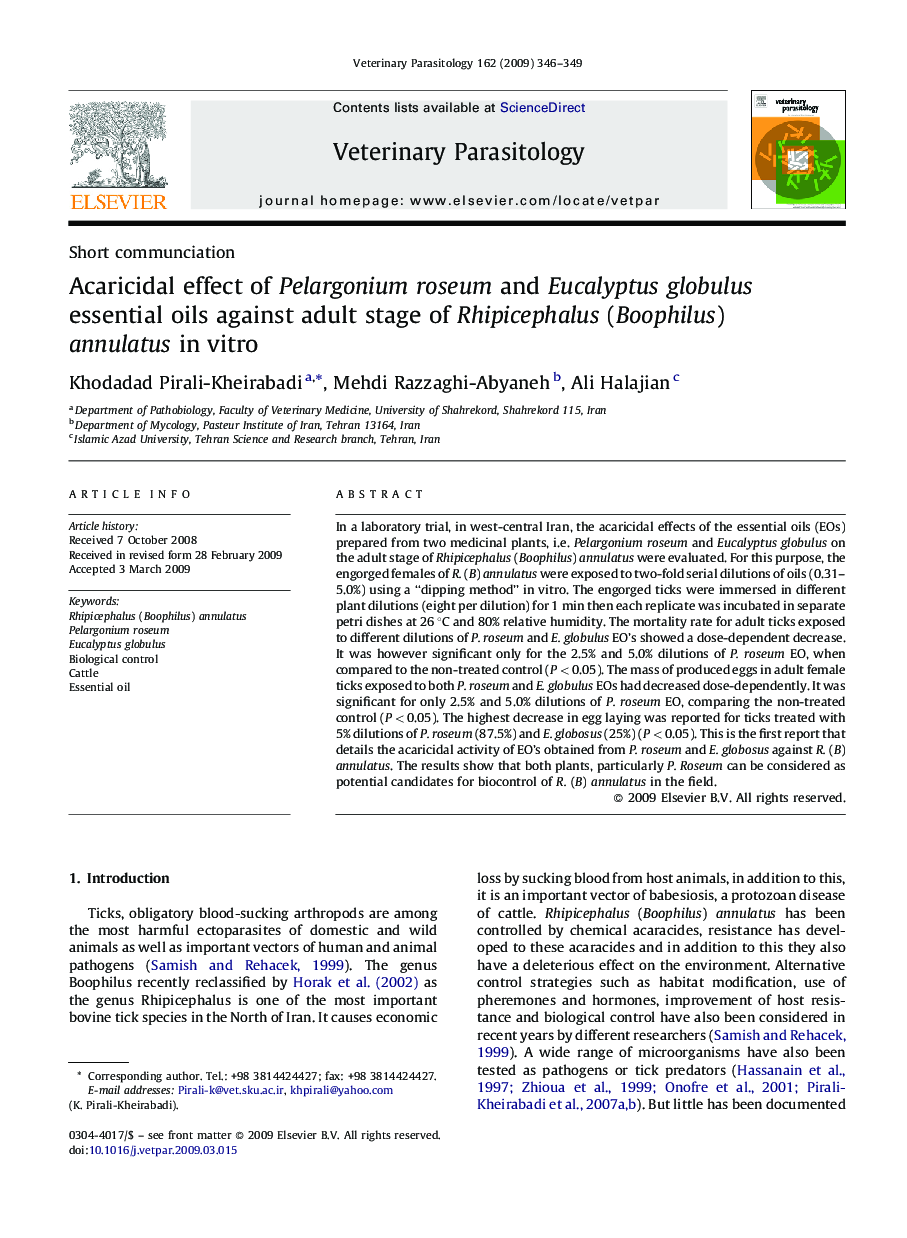| Article ID | Journal | Published Year | Pages | File Type |
|---|---|---|---|---|
| 5806297 | Veterinary Parasitology | 2009 | 4 Pages |
In a laboratory trial, in west-central Iran, the acaricidal effects of the essential oils (EOs) prepared from two medicinal plants, i.e. Pelargonium roseum and Eucalyptus globulus on the adult stage of Rhipicephalus (Boophilus) annulatus were evaluated. For this purpose, the engorged females of R. (B) annulatus were exposed to two-fold serial dilutions of oils (0.31-5.0%) using a “dipping method” in vitro. The engorged ticks were immersed in different plant dilutions (eight per dilution) for 1 min then each replicate was incubated in separate petri dishes at 26 °C and 80% relative humidity. The mortality rate for adult ticks exposed to different dilutions of P. roseum and E. globulus EO's showed a dose-dependent decrease. It was however significant only for the 2.5% and 5.0% dilutions of P. roseum EO, when compared to the non-treated control (P < 0.05). The mass of produced eggs in adult female ticks exposed to both P. roseum and E. globulus EOs had decreased dose-dependently. It was significant for only 2.5% and 5.0% dilutions of P. roseum EO, comparing the non-treated control (P < 0.05). The highest decrease in egg laying was reported for ticks treated with 5% dilutions of P. roseum (87.5%) and E. globosus (25%) (P < 0.05). This is the first report that details the acaricidal activity of EO's obtained from P. roseum and E. globosus against R. (B) annulatus. The results show that both plants, particularly P. Roseum can be considered as potential candidates for biocontrol of R. (B) annulatus in the field.
